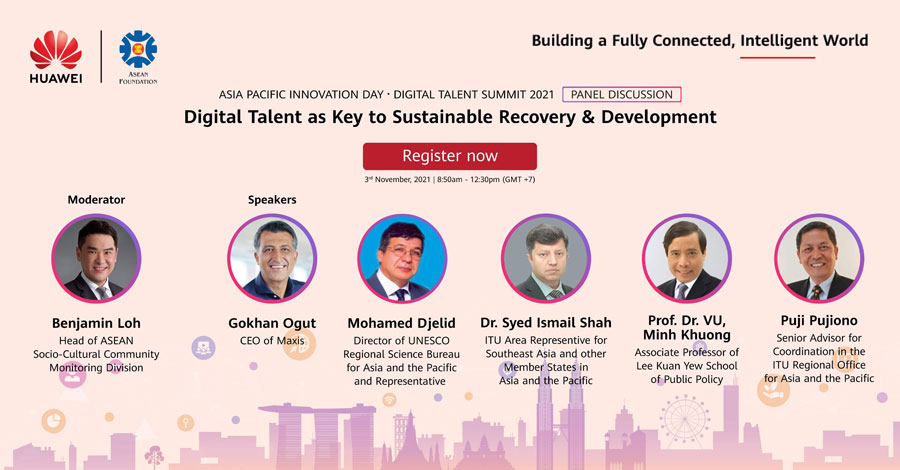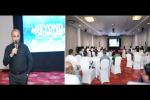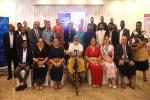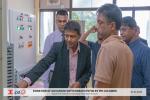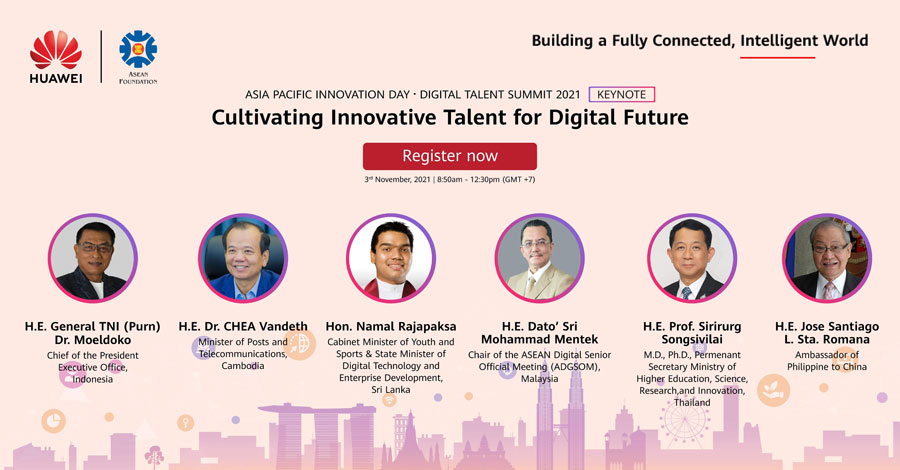The online summit is aimed at bringing together policy makers, researchers and industry experts to share solutions and best practices in building a sustainable ecosystem that will help foster digital talents in Asia Pacific.
The COVID-19 pandemic has forcefully accelerated the digital economy over the last 1.5 years.
As companies and organisations are undergoing rapid digital transformation and seeking skilled knowledge workers to meet the challenges brought by the rise of digital economy, it becomes apparent that there remains a huge gap in digital talents across the Asia Pacific region.
A Korn Ferry research finds that Asia Pacific is facing an imminent labor shortage of 47 million people by 2030 and an annual opportunity cost of US$4.238 trillion.
According to PwC’s 20th CEO Survey, more than 50% of APAC CEOs say it’s difficult to hire digital talent with the right skills.
To solve the digital talent gap and seize the leapfrog opportunity in the digital era, governments across the region have been actively strengthening the policy and providing support.
At the summit, governments’ leaders from countries across the region, such as Indonesia, Thailand, Cambodia, Malaysia, Philippines and Sri Lanka will share their practice, policy suggestions and vision in cultivating the digital talent ecosystem.
Namal Rajapaksa - Cabinet Minister of Youth & Sports, Minister of Development Co-ordination and Monitoring and State Minister of Digital Technology and Enterprise Development will also be keynote speaker at the event.
A sustainable digital talent ecosystem requires joint efforts from government, corporations, industrial organizations and educational institutions.
Notable speakers from ASEAN, UNESCO, International Telecommunication Union, Lee Kuan Yew School of Public Policy and Maxis Communications will be featured in the panel discussion on the topic of “Digital Talent as Key to Sustainable Recovery & Development” at the summit.
“The creation of a sustainable talent development ecosystem in Asia Pacific requires forward-thinking policymaking and strong public-private partnership.
A conducive learning ecosystem will help to groom a generation of digital talents that will someday lead the region’s digital future,” said Dr. Yang Mee Eng, Executive Director of ASEAN Foundation.
As the co-organizer of this summit, Huawei this July announced its Seeds for the Future Program 2.0, through which the tech company plans to invest $150 million in digital talent development over the next five years.
The program is expected to benefit more than 3 million additional people globally.
In 2008, Huawei began to roll out talent development programs, and has since benefited more than 1.54 million people from over 150 countries through scholarships, technology competitions and digital skills training.
For example, initiated in 2008 in Thailand, the Seeds for the Future Program is designed to inspire local talents and encourage seeds for the society to tackle digital challenges.
“The world ahead will be one dominated by devices: connecting, sensing, and reacting to everything around us.
We hope our education programs not only reaffirms our commitment to social responsibility, but also prepares the next generation of experts to design and navigate this digital landscape.
Our future depends on it,” said Jay Chen, Vice President at Huawei Asia Pacific.
The summit can be viewed live at https://www.huawei.com/en/events/asia-pacific-innovation-day-2021 and ASEAN Foundation’s official Facebook page on November 3 from 9:00 a.m. to 12:30 p.m. (GMT+7).
